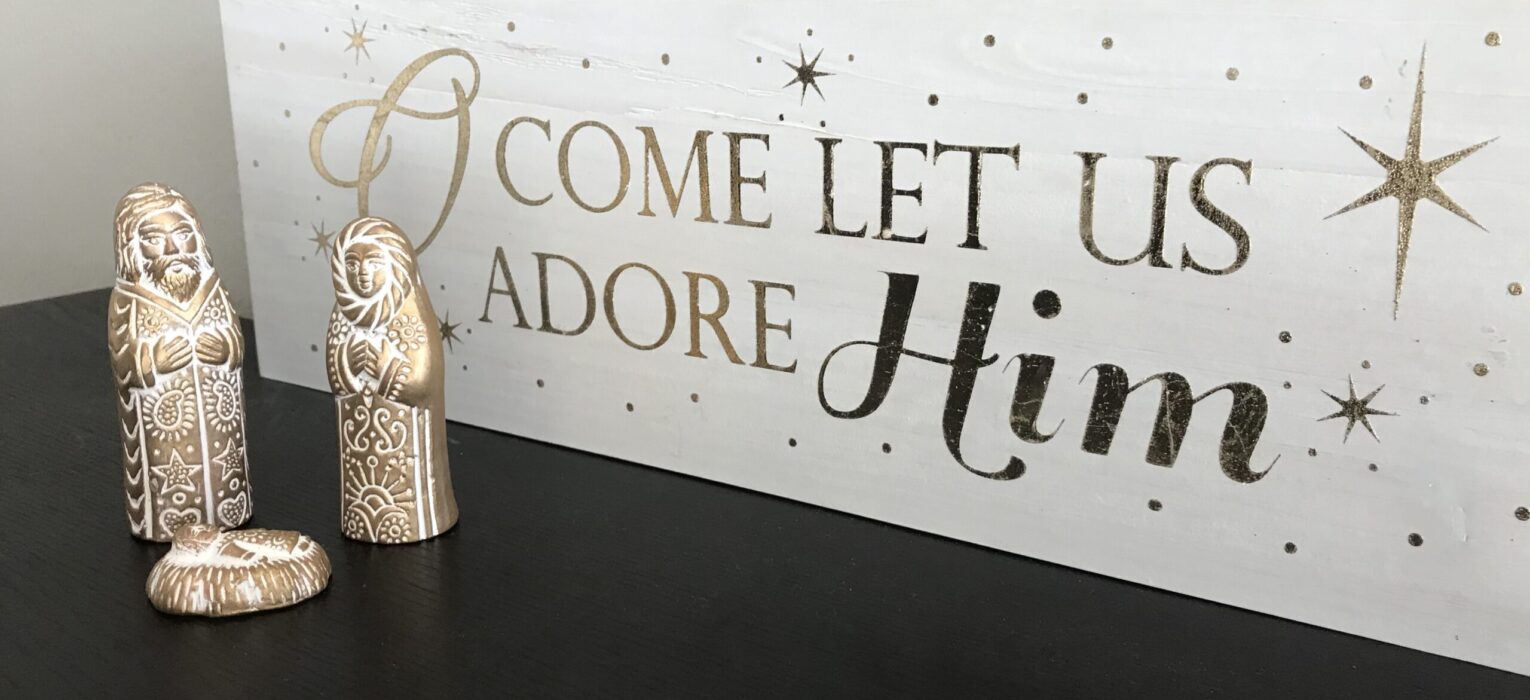I twisted a lone strand of hay as I knelt beside the manger. In a role without lines, I played one of the most important parts of the nativity: Mary. With the spotlight on me, I was grateful for the long purple dress and the patterned head covering because I wanted to hide as much as possible. I tried my best to look holy, totally forgetting the mother part. A pastor later commented on my performance that I could have at least touched the hand of the baby Jesus (played by a doll). To be fair, I was true to myself—newborn babies made me nervous, and if my baby was God, I think I may have hesitated in my interactions with him. This is probably the reason, among many others, I wasn’t selected to birth the Christ child.
As I prepare to celebrate Christmas this year, I ponder the lives and lessons of the women involved in the Christmas story. It is fascinating how many named women surround Jesus’ birth: Mary, Elizabeth, and Anna. These women are a testament to how God uses both men and women to accomplish God’s purposes. As we anticipate the world-changing event of God putting on flesh and becoming Emmanuel (God with us), I am struck by the woman who was there at the beginning and the end of Jesus’ life on earth, Mary. From Mary, we learn two crucial lessons.
- Mary believed in the goodness of God.
When Mary encountered an angelic being with a message of a coming baby that would save the world, her only question was the practicalities of it all since she was unmarried and a virgin. She didn’t seem to be bothered by the fact that being pregnant and unmarried wasn’t Good News for her. In fact, for her at the time and in her culture, being unmarried and pregnant was actually a death sentence (Deuteronomy 22). Despite this, she responds with, “I am the Lord’s servant. May your word to me be fulfilled” (Luke 1:38). Mary’s willingness to participate in carrying, birthing, and raising Jesus shows us that she must have believed this was good news because it came from a good God. Just as with Mary, God may ask us to do hard things (forgiving someone), maybe even seemingly impossible things (starting a ministry or small group), maybe things we’d rather not do because it’s uncomfortable (sharing Jesus with a friend or neighbor); we can respond by believing in God’s goodness and submitting to what God has for us, knowing that God is with us in it all.
- Mary trusted God.
Because Mary believed in the goodness of God, she was also able to trust God, even when she didn’t always understand what was happening. After the birth of Jesus, lowly shepherds came with contagious exuberance to share the Good News of Jesus’ birth to all who would listen. Mary responded by cherishing this reaction to her baby and pondered what it could mean (Luke 2:19). She also listened in wonder when Simeon prophesized over Jesus (Luke 2:33). Later, when Jesus was twelve and went missing after the Passover celebration in Jerusalem, Mary was surprised to find him back at the temple talking to the teachers and leaders. Even more shocking was Jesus’ response: “Didn’t you know I had to be in my Father’s house?” (Luke 2:49) No, Mary hadn’t thought of that and didn’t fully understand Jesus’ words, yet she trusted God in the process, took Jesus home, and raised him as best she could (Luke 2:50-52). Most agonizing of all, Mary trusted God all the way to Calvary where she watched her baby die a most painful and humiliating death (John 19:25). Praise God this kind of sacrifice was only required once for all time! Like Mary, we may find ourselves trusting God even when we don’t understand what’s going on with our lives. When the diagnosis is bad. When we struggle to pay the rent. When dreams are postponed or disappointed. In this middle of it all, we can trust God will work all things for good (Romans 8:28), even if we feel clueless about how God could possibly do this. Sometimes we don’t need to know the how—we just need to know the One through whom we live and move and have our being (Acts 17:28).
In between the shopping, the cooking, and the nativity plays, we can pause in the wonder of what the birth of Jesus means to us. We can look to the women surrounding his birth and learn from their lives.
Movement Step: Which lesson from Mary can you apply to your life today? Consider looking up verses about the goodness of God. This will help you move from believing God is good to trusting our good God.



